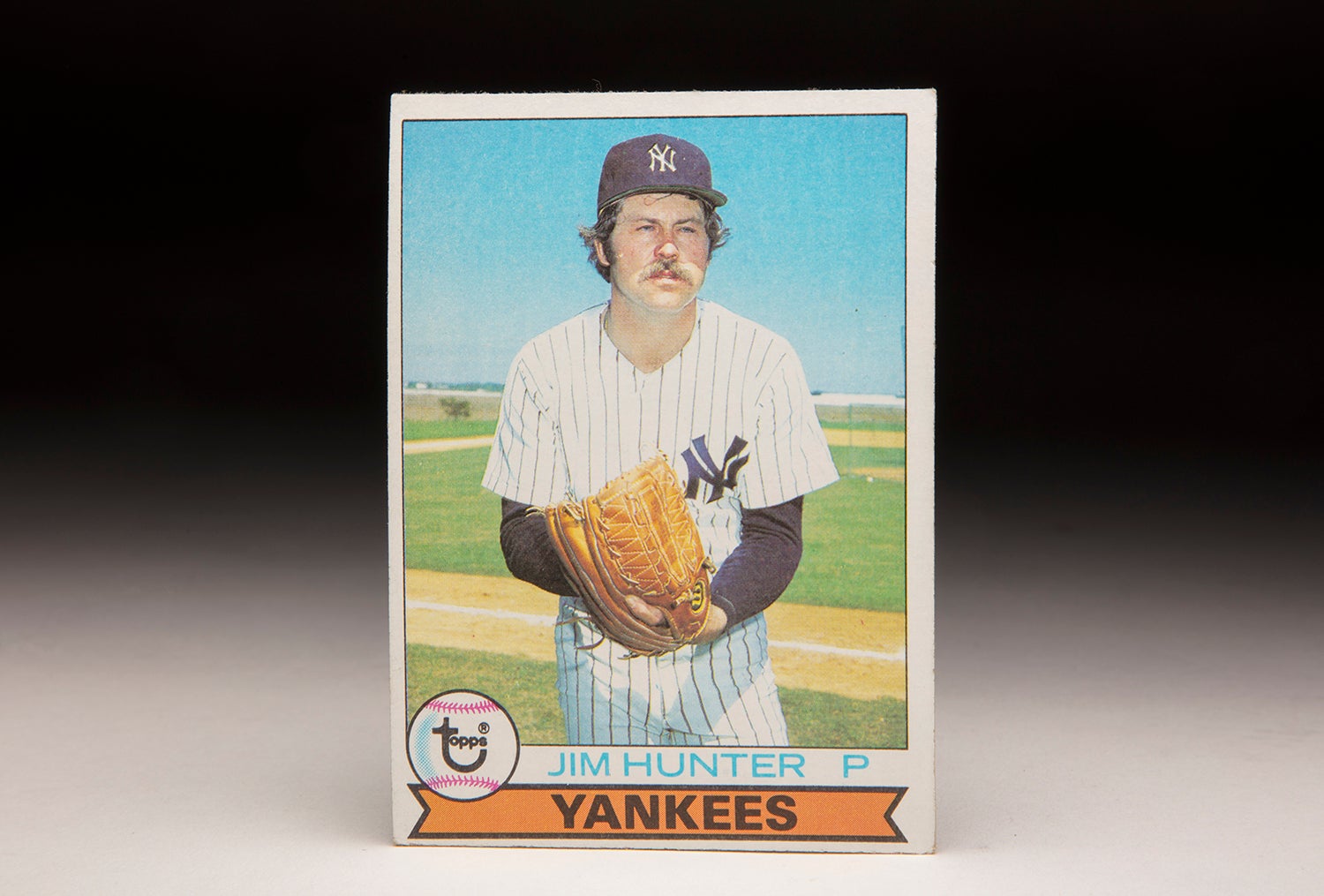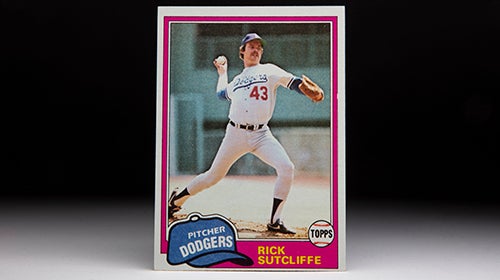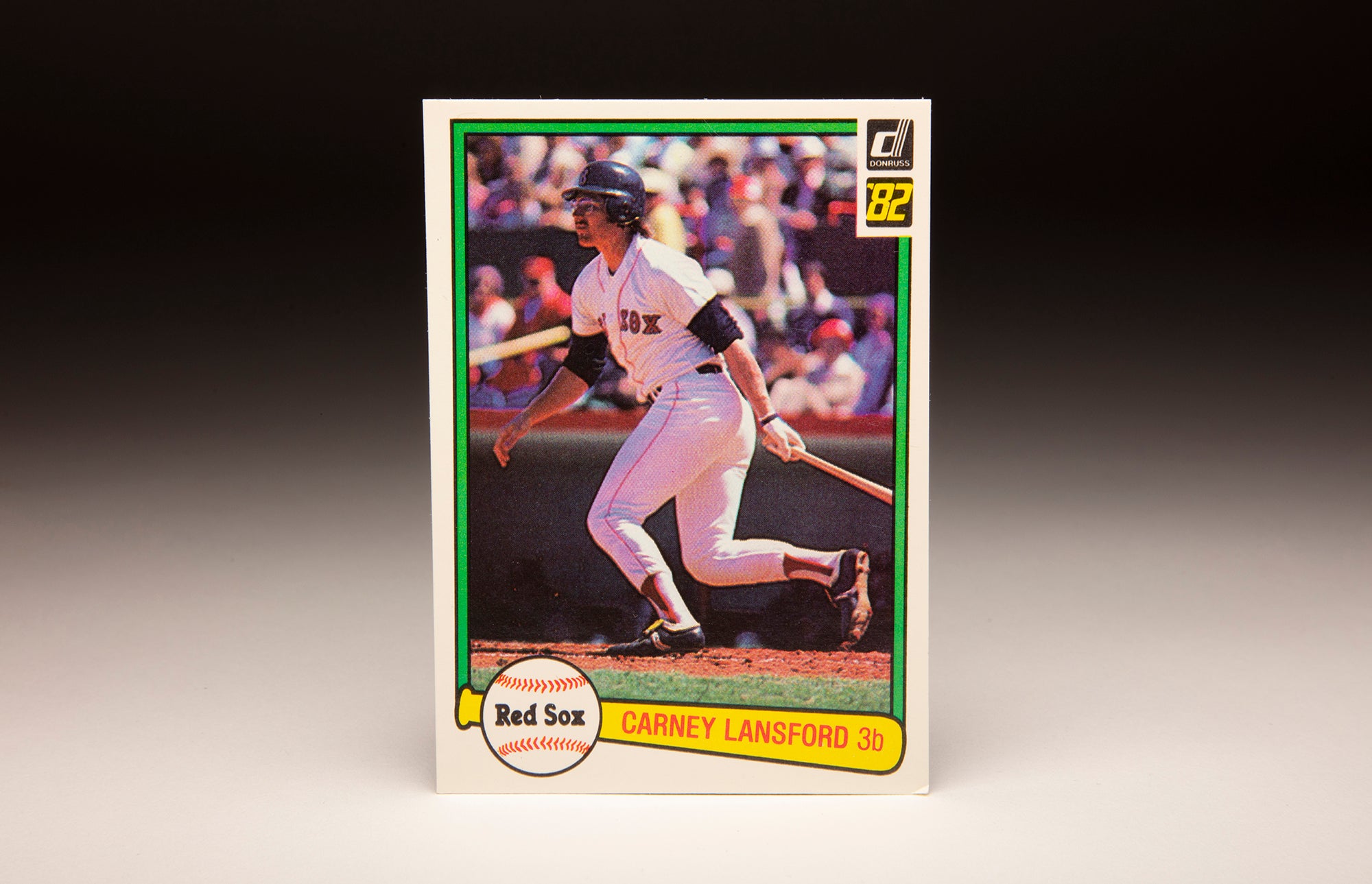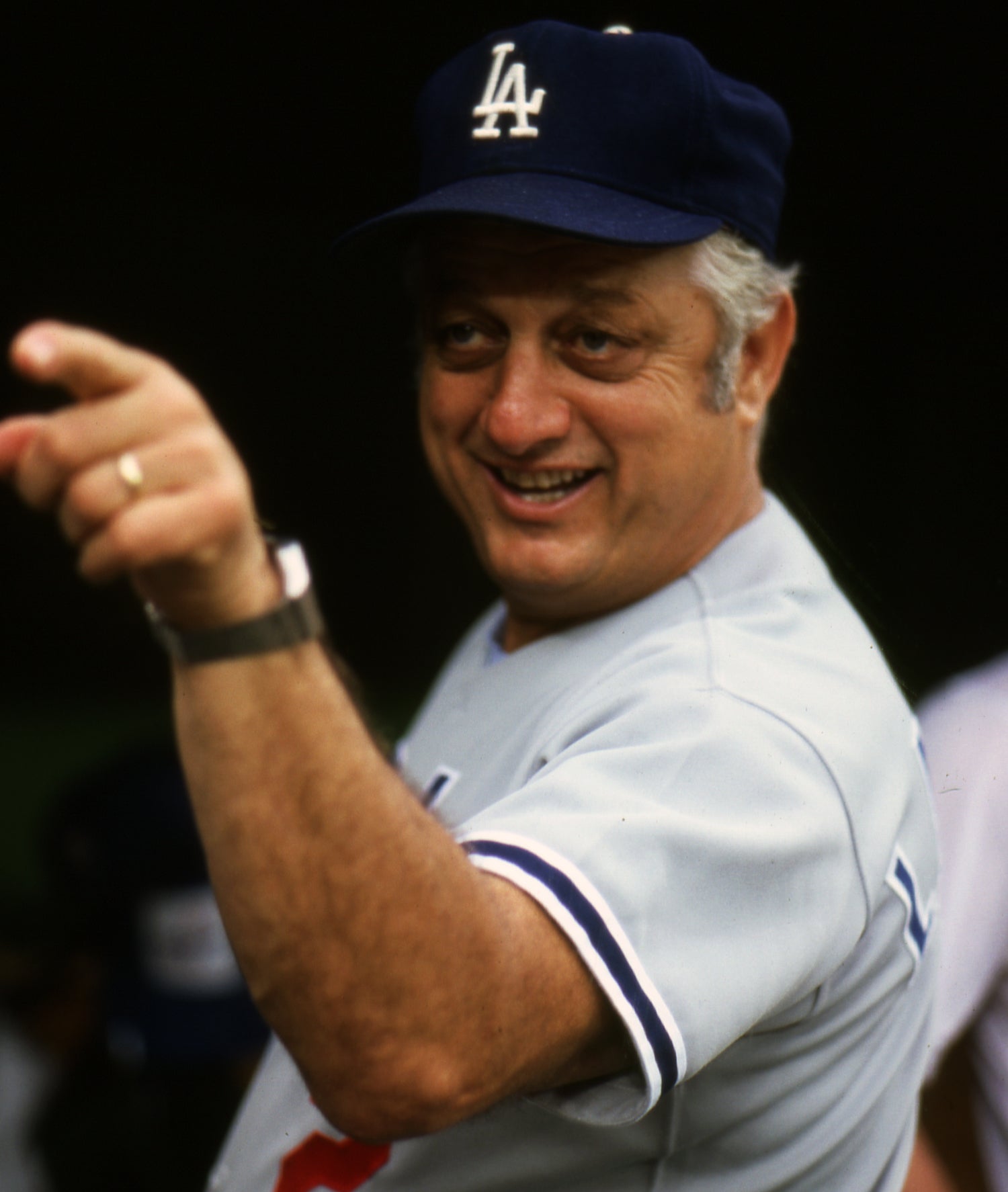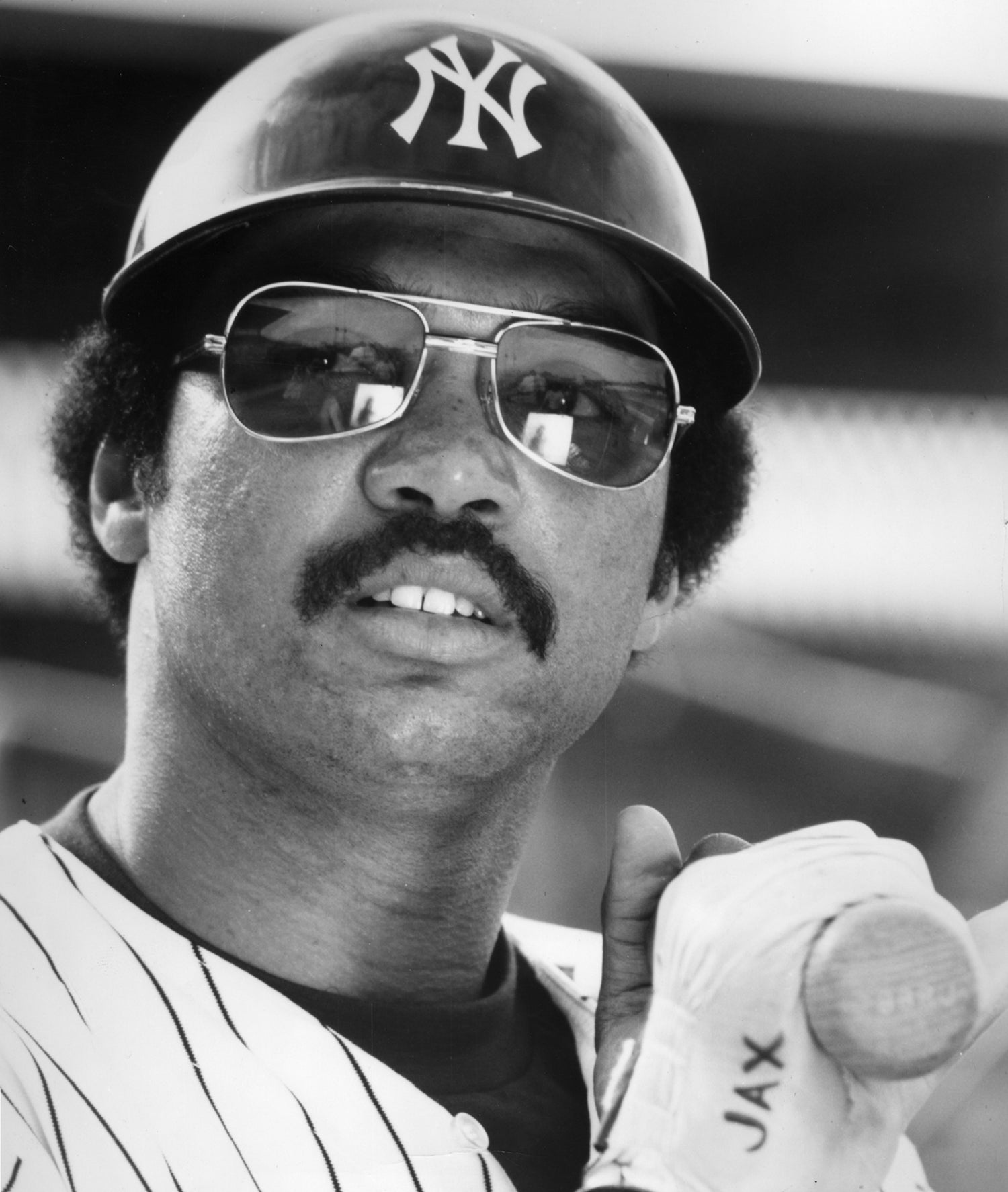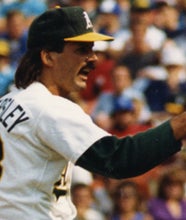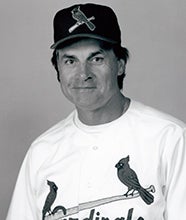- Home
- Our Stories
- #CardCorner: 1979 Topps Bob Welch
#CardCorner: 1979 Topps Bob Welch
With seemingly the entire country watching, Bob Welch was summoned to the Dodger Stadium mound on Oct. 11, 1978, in Game 2 of the World Series.
Los Angeles led the Yankees 4-3 but reliever Terry Forster had allowed a single by Bucky Dent and a walk to Paul Blair sandwiched around a groundout by Roy White. So with two on and one out, Dodgers manager Tommy Lasorda called on the 21-year-old Welch to face the heart of the New York lineup.
Welch coaxed Thurman Munson to fly out, bringing up Reggie Jackson with the game on the line. A year earlier, Jackson had hit five home runs in the World Series against the Dodgers, becoming the most recognizable sports figure in the United States.
“You couldn’t ask for a more dramatic moment for a young pitcher to walk into than right here,” pitcher Tom Seaver, working for NBC as a color analyst, told the vast TV audience.
Jackson swung and missed at a fastball for strike one, then left his feet on a high-and-inside pitch before fouling a ball off to make the count 1-and-2. Two more fouls followed before a ball and another foul. Ball three ran the count full. Then on the ninth pitch of the at-bat, Welch threw his ninth fastball – inside and high – and Jackson swung through it for strike three.
Overnight, Bob Welch had become a household name. And though Jackson would get his revenge against Welch in Game 6 with a two-run homer as the Yankees again won the World Series title, Welch was well on his way to becoming one of the best pitchers in the game.
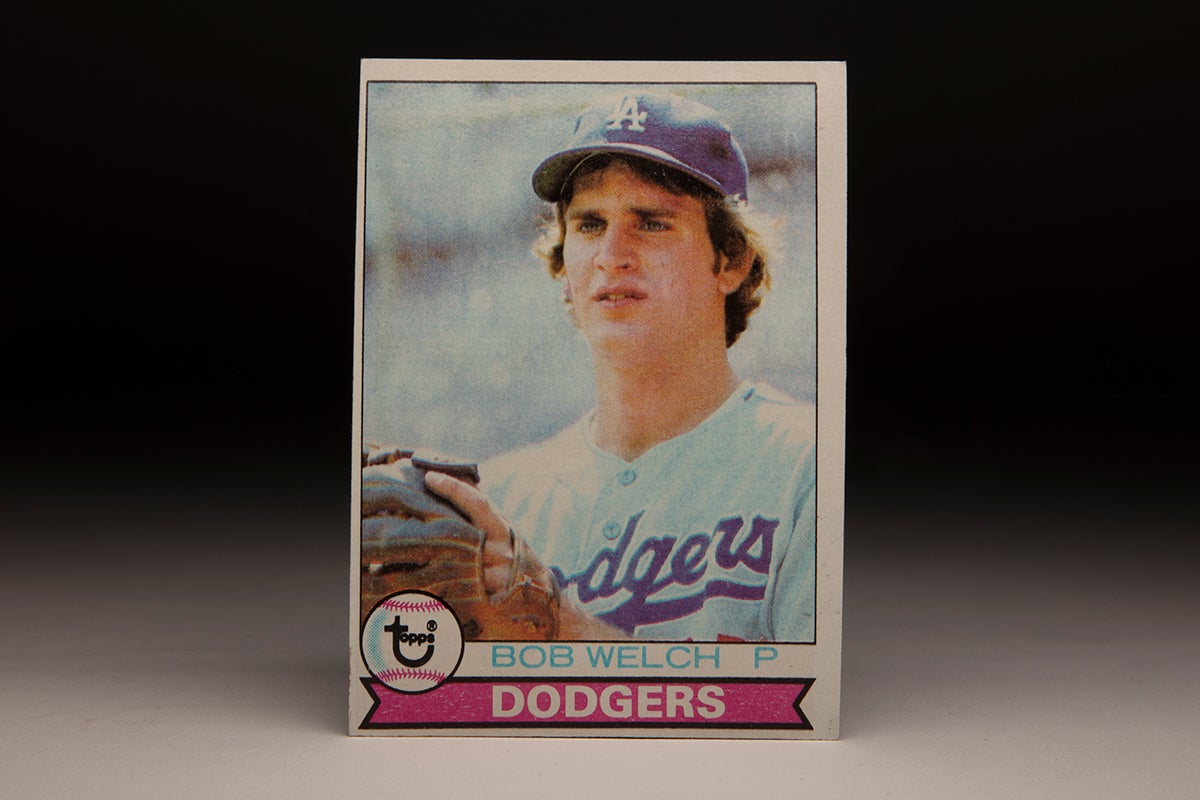
Born Nov. 3, 1956, in Detroit, Welch grew up in nearby Hazel Park. He established himself as a big league prospect via his strong fastball – and was selected in the 14th round of the 1974 MLB Draft by the Chicago Cubs. But instead of turning pro, Welch accepted a scholarship to play at Eastern Michigan University in nearby Ypsilanti, Mich.
Welch starred as a freshman and sophomore at Eastern Michigan but developed a sore arm as a junior.
“Of course I was concerned,” Welch told the Detroit Free Press. “Anytime there’s anything wrong with a pitcher’s arm he’s concerned. It was my career.”
But the Dodgers saw enough potential in Welch to make him their No. 1 pick (20th overall) in the 1977 MLB Draft.
“Our scouts were very impressed with (Welch),” Dodgers manager Tommy Lasorda told the Free Press. “I would have to compare him with Rick Rhoden on our staff. Rick had a bad leg so nobody would touch him. Our doctors thought it was nothing serious, so we drafted him. Rick spent a year in Double-A and some time in Triple-A and then he came up.”
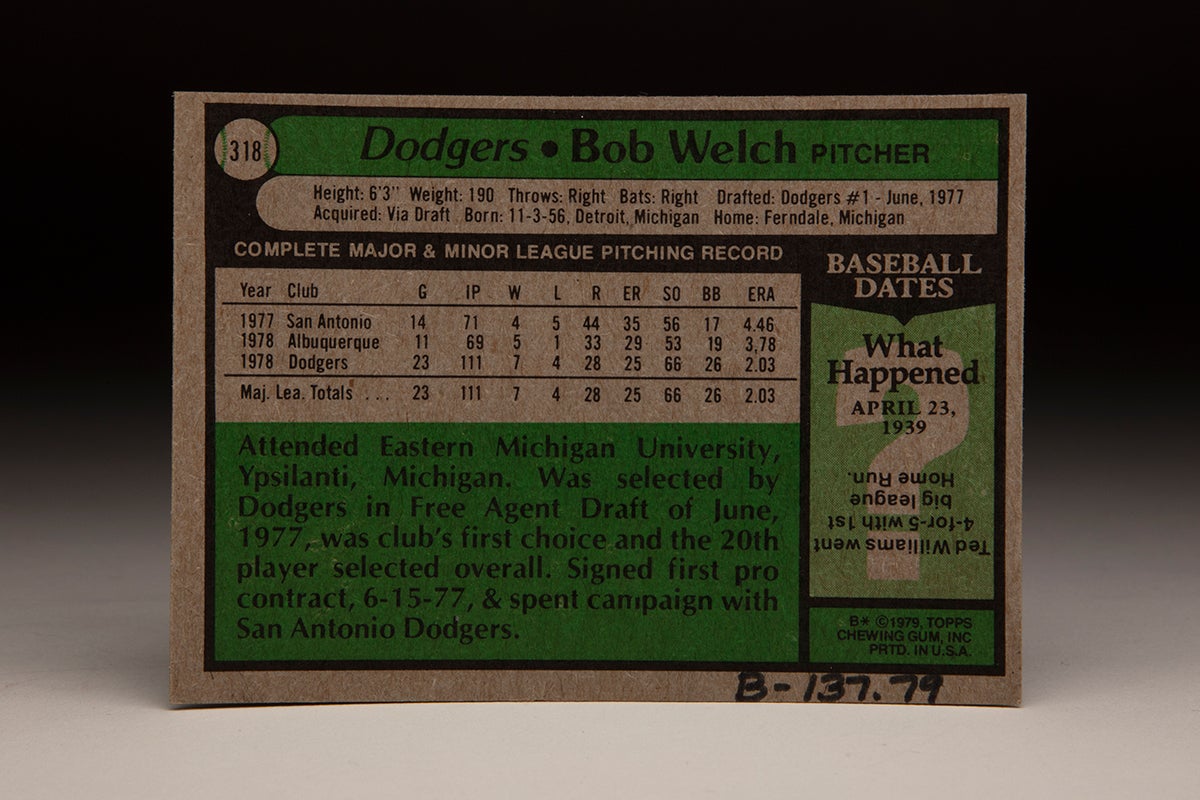
Welch, like Rhoden a hard-throwing right-hander, was assigned to Double-A San Antonio after signing with the Dodgers and went 4-5 with a 4.44 ERA in 14 starts. In 1978, he started the season with Triple-A Albuquerque and was 5-1 with a 3.78 ERA when the Dodgers brought him to Los Angeles in June.
“In a way, I was very surprised when they brought me up,” Welch told the Free Press in 1978. “They just told me to go get ’em.”
Welch made his big league debut on June 20, 1978, with two innings of scoreless relief against the Astros. He picked up his first MLB win a day later against Houston with two more shutout innings, notched a save against the Reds on June 24 and then started his first game against Cincinnati on June 30, working six scoreless frames.
“(Welch) has all the ingredients,” Lasorda told the Free Press. “He has tremendous poise and courage. He’s not afraid to challenge the hitters.”
Lasorda moved Welch into the starting rotation in August, and Welch pitched his first shutout on Aug. 5 in a 2-0 win over the Giants. By the end of the season, Welch was 7-4 with a 2.02 ERA in 111.1 innings with three saves and three shutouts.
But unbeknownst to many, Welch was batting alcoholism – a disease that had affected him since he was a teenager. It would get worse as the pressure of big league stardom increased.
“I started drinking when I was 16,” Welch told The New York Times. “I continued to drink until I was 23.”
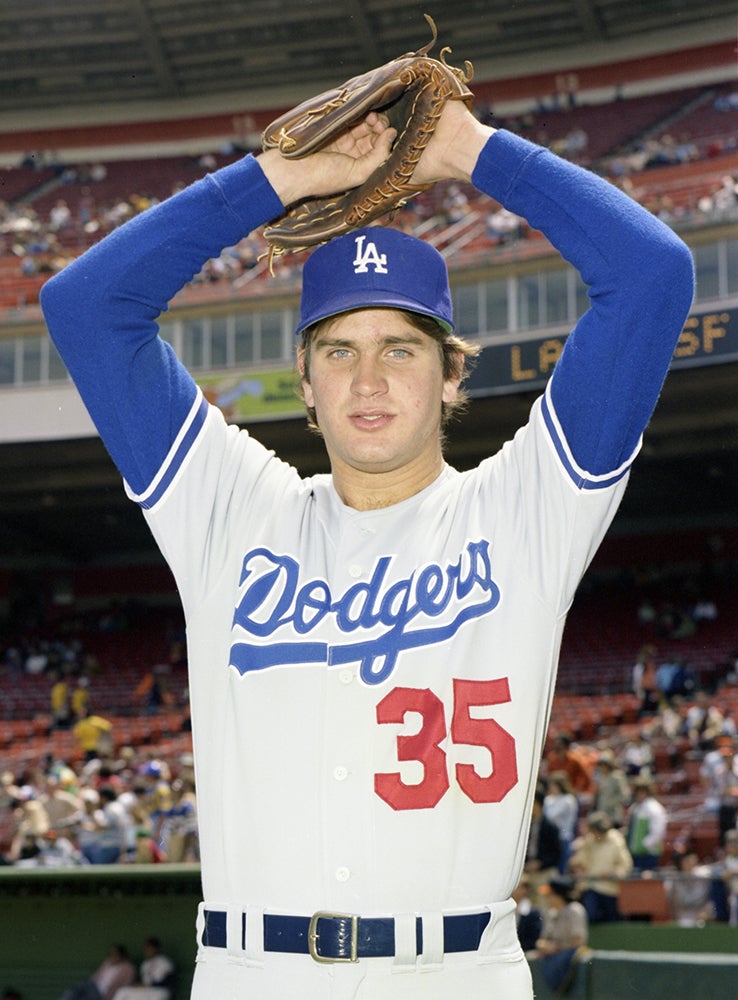
Welch made his postseason debut in Game 1 of the NLCS vs. the Phillies, squelching a fifth-inning Phillies rally when he relieved Burt Hooton with runners on first and second and the Dodgers leading 7-4. Welch got Mike Schmidt to fly out to end the frame and then pitched the next four innings, allowing only a ninth-inning home run to Jerry Martin in a 9-5 Dodgers win. Welch permitted just two hits over 4.1 innings and struck out five to earn the victory.
Those heroics, however, were just a prelude to Game 2 of the World Series and his matchup against Mr. October.
“That was a seminal moment, against Reggie,” former Athletics teammate Dave Stewart told the Oakland Tribune.
Welch also pitched in Game 4 of the World Series, entering the game in the eighth inning and pitching a perfect ninth before a Roy White walk, a Jackson single and a Lou Piniella base hit ended the game in the bottom of the 10th. And though Welch and the Dodgers lost the World Series to Jackson and the Yankees, the future seemed to be limitless for the 21-year-old fastball master.
But trouble was on the horizon. Welch was described as a “certified flake” in the media by his teammates in 1979 before almost anyone knew of his issues with alcohol. And his performance during that season became increasingly erratic.
“People say I’m a spaceman,” Welch told the Washington Post-L.A. Times Wire Service. “Actually, I’m cool. They say my eyes kind of glare. But they’re the ones who are crazy.”
Welch pitched in 25 games in 1979, going 5-6 with a 3.98 ERA while battling arm issues. After the holidays, he told Dodgers general manager Al Campanis that he had tried to slow his drinking habits but failed. He asked for help, and the Dodgers helped him enter a rehabilitation facility in Wickenburg, Ariz.
“I hated that place,” Welch told The New York Times. “If I had a car, I would have left the first day. I kept telling myself: ‘I don’t have to be here.’ I was a ballplayer. I didn’t need this.”
But Welch stuck it out. And with the help of Dodgers friends like Lasorda, Rick Sutcliffe and Don Newcombe, he completed the program and revealed his addition to his teammates in Spring Training.
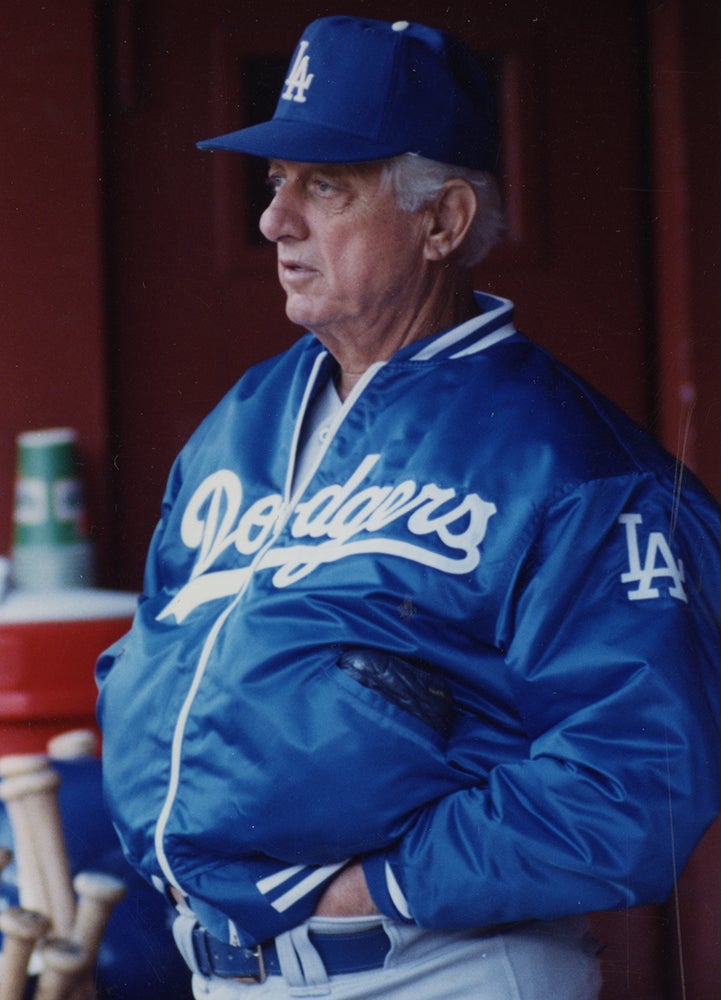
Sober for the first time as a professional, Welch quickly ascended to a position as one of the game’s most durable and reliable pitchers. He went 14-9 with a 3.29 ERA in 213.2 innings in 1980, earning his first All-Star Game berth. He faced the minimum 27 batters in a shutout against the Braves on May 29, allowing only a fourth-inning single to Larvell Blanks, who was erased on a double play.
“I don’t think anybody in this league is quicker,” Dodgers catcher Steve Yeager told the Washington Post-L.A. Times Wire Service of Welch and his fastball.
In 1981, Welch encountered pain in Spring Training from a bone spur in his pitching elbow but fought through it, going 9-5 with a 3.44 ERA over 141.1 innings in that strike-shortened season. Welch worked out of the bullpen in the postseason as the Dodgers defeated Houston in the NLDS and Montreal in the NLCS, picking up a save in the fifth-and-deciding game against the Expos when he relieved Fernando Valenzuela with two on and two out in the bottom of the ninth with Los Angeles leading 2-1.
Welch got Jerry White to ground out to second base on the first pitch to secure the win and send the Dodgers to the World Series.
“First, I think Fernando was trying to be too careful,” Dodgers manager Tommy Lasorda told the Associated Press when asked why he removed his rookie sensation after walking two batters in a row in the ninth. “And second, we wanted to make White (a switch-hitter) bat from the left side rather than the right.”
Lasorda tabbed Welch to start Game 4 of the World Series vs. the Yankees. But with New York leading the series 2-games-to-1, Welch was on a short leash. He faced only four batters in the top of the first inning, allowing a triple to Willie Randolph, a double to Larry Milbourne, a walk to Dave Winfield and a single to Reggie Jackson before Lasorda called on Dave Goltz in relief. It marked just the fifth time in World Series history that a starting pitcher had failed to record at least one out – and just the third of those occasions where that team came back to win after the Dodgers rallied for an 8-7 victory.
It proved to be the turning point of the World Series as Los Angeles won the championship in six games, though Welch did not appear in any further games.
Welch went 16-11 with a 3.36 ERA in 1982. But he made national headlines upon the publication of his book with George Vecsey: “Five O’clock Comes Early: A Young Man’s Battle with Alcoholism” – a book that was hailed as a major step in understanding alcohol-addiction treatment among athletes.
“The fact is, I’m crazy when I’m drunk,” Welch said in the book. “There’s every chance I would have been dead by now if I was drinking.
“I was stone sober (when facing Reggie Jackson in the 1978 World Series). I hadn’t gotten around to drinking before a game, particularly a World Series game – although, given time, I would have.”
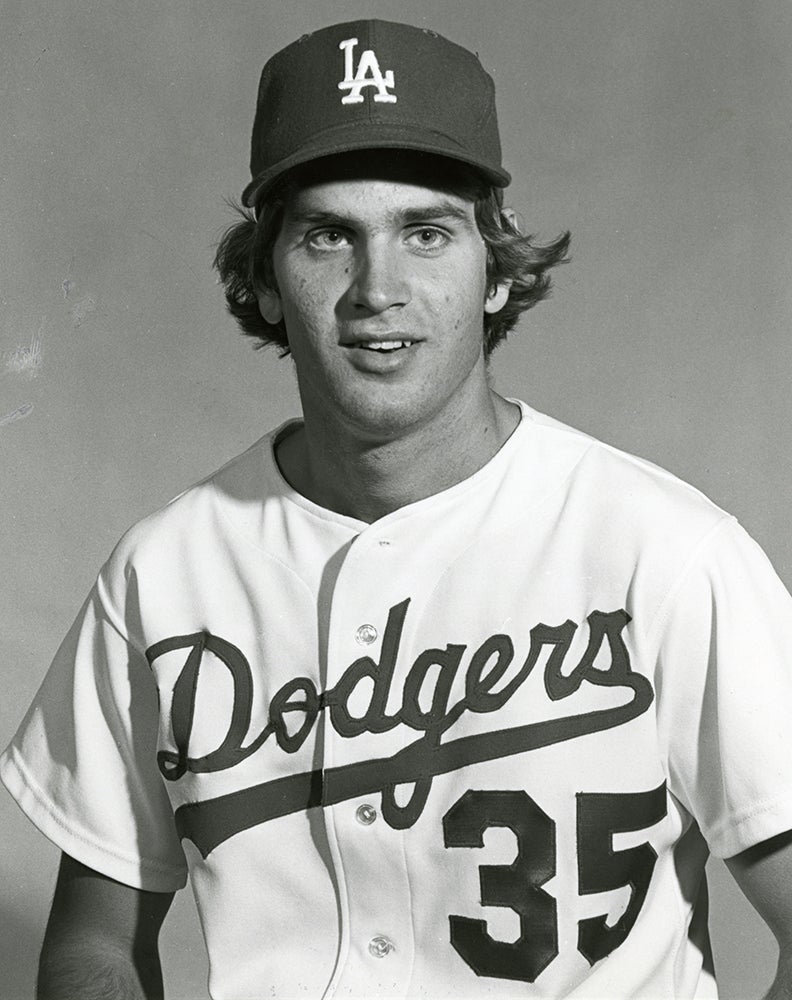
In 1983, the Dodgers returned to the postseason by winning the NL West as Welch went 15-12 with a 2.65 ERA, finishing eighth in the NL Cy Young Award voting. He started Game 3 of the NLCS vs. the Phillies but was knocked out of the box in the second inning when the bursitis in his left hip left him unable to continue after one-out walks to Gary Matthews and Greg Gross. The Phillies went on to win 7-2 and advance to the World Series in four games.
Welch went 13-13 with a 3.78 ERA in 1984 and then endured more arm pain in 1985 – agony that was only lessened slightly by cortisone shots. Sent to Class A Vero Beach after just one appearance, Welch was told to work on off-speed pitches. He returned in June with a split-fingered fastball and change-up – and proceeded to post a 9-1 record in his first 12 starts, including six complete games and two shutouts.
“I’m probably happiest about Bobby and what he has overcome,” Dodgers pitching coach Ron Perranoski told The New York Times News Service during a year where the team was assembling one of the deepest starting rotations in memory. “That elbow only could have taken one more cortisone shot, and then it was surgery for sure. But it responded.”
Welch finished the season 14-4 with a 2.31 ERA in 23 starts. The Dodgers won the NL West title, and Welch started Game 3 of the NLCS vs. the Cardinals. But St. Louis scored two runs in the first inning and two more in the second – and Welch was relieved by Rick Honeycutt in the third inning after walking opposing pitcher Danny Cox. The Cardinals won the series in six games, and Welch did not pitch again.
It would be the last of 11 postseason games that Welch would pitch for Los Angeles.
Welch went 7-13 in 1986 but had a 3.28 ERA over 235.2 innings. Then in 1987, Welch was 15-9 with a 3.22 ERA and an NL-best four shutouts – once again finishing eighth in the NL Cy Young Award voting.
On Dec. 11, 1987, the Dodgers, Athletics and Mets consummated a three-team trade that saw Welch land in Oakland.
“I feel real bad about Bob Welch,” Lasorda told the AP. “Last night I was really sick to my stomach about Bob Welch – he’s helped me win playoffs.”
The A’s, however, were ecstatic.
“If we could get Bob Welch, we had to go for it,” Athletics manager Tony La Russa told the AP.
Welch immediately stabilized Oakland’s starting rotation and went 17-9 in 1988, helping the A’s advance to the World Series against the Dodgers. Welch started Game 3 of the Fall Classic against his old team, allowing just one run over five-plus innings before leaving with the bases loaded and no one out in the sixth. The Oakland bullpen shut the door to keep the game tied at one, and the Athletics won the game in the bottom of the ninth on a walk-off home run by Mark McGwire. It would be Oakland’s only win of the series as the Dodgers took the title in five games.
Welch collected his second World Series ring in 1989, going 17-8 with a 3.00 ERA and then picking up a victory against Toronto in his only start of the ALCS. He did not appear in the World Series, which was delayed for 12 days due to the Loma Prieta earthquake in the Bay Area – which allowed La Russa to start Dave Stewart and Mike Moore twice in the first four games against the Giants as the A’s swept the series.
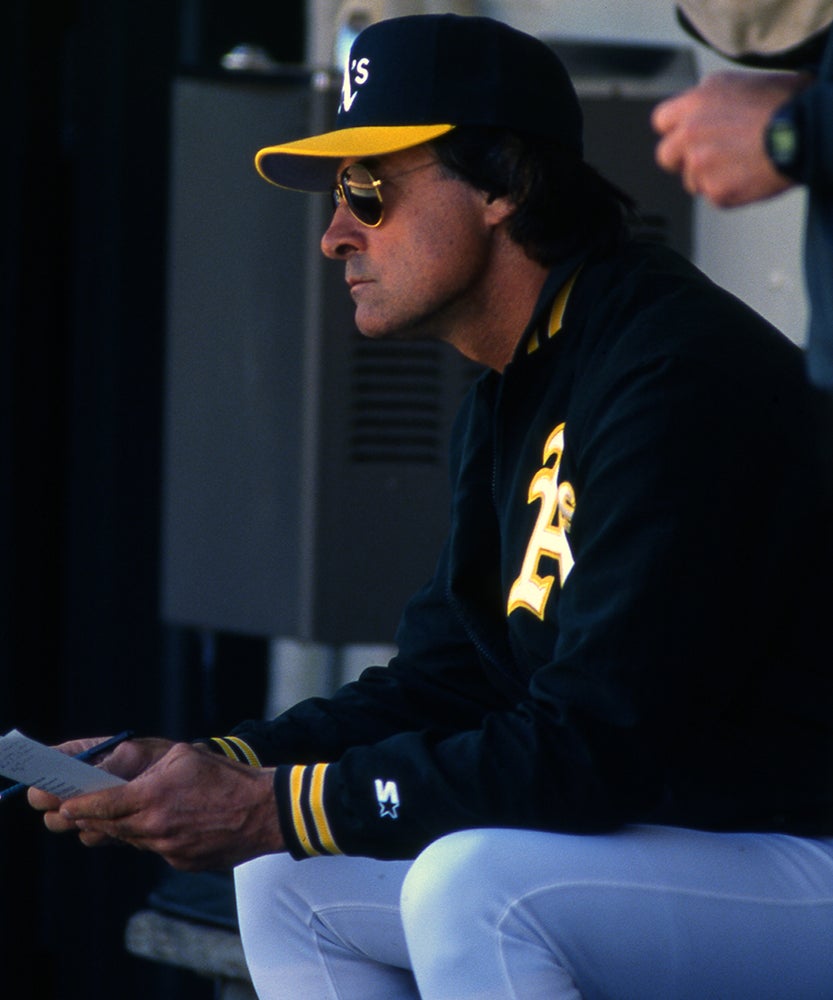
Welch had a season for the ages in 1990, going 27-6 with a 2.95 ERA as Oakland advanced to its third straight World Series. Welch won his 20th game of the season on Aug. 17 – prompting speculation that 30 wins might be within reach. But La Russa kept him on schedule and he made just nine more starts, winning seven.
Welch won Game 2 of the ALCS vs. the Red Sox as Oakland swept Boston to advance to the World Series. Welch would start Game 2 of the Fall Classic against Cincinnati, allowing four runs over 7.1 innings in a contest the Reds won on a walk-off single by Joe Oliver against Dennis Eckersley. Cincinnati completed its sweep three days later, and Welch did not pitch again.
Entering free agency following the 1990 season, Welch resigned with the Athletics on Dec. 15 – agreeing to a four-year, $13.8 million contract that made him the second-highest paid pitcher in the game behind only A’s teammate Dave Stewart. But the workload began to catch up with Welch in 1991 as he went 12-13 with a 4.58 ERA. He bounced back with an 11-7 record and 3.27 ERA in 1992 but made only 20 starts due to shoulder and arm issues and spent three different stints on the disabled list.
The A’s returned to the postseason in 1992 after missing the playoffs in 1991, and Welch started Game 4 of the ALCS vs. the Blue Jays, allowing two runs over seven frames in a game Toronto won 7-6 in 11 innings. The Blue Jays won the series in six games – and Game 4 marked the final contest of Welch’s postseason career as he finished with a 3-3 record, two saves and a 4.56 ERA over 17 appearances.
Injuries limited Welch to 235.1 innings over the final two seasons of his contract with the Athletics. He immediately turned to coaching, signing on as Arizona State’s pitching coach in 1995.
“I was looking at several opportunities, including some in professional baseball, but I liked this the best,” Welch told the Arizona Republic.
Welch remained in coaching and served for one year as the Arizona Diamondbacks’ pitching coach – the 2001 season when the D-backs won the World Series title behind aces Randy Johnson and Curt Schilling.
On June 9, 2014, Welch was found dead in his home at Seal Beach, Calif. Early reporting indicated Welch died of a heart attack but later reports confirmed he passed away from injuries suffered in a bathroom fall.
Over 17 big league seasons, Welch was 211-146 with a 3.47 ERA.
“He was an incredible guy, and we had a special connection,” Eckersley, who was elected to the Hall of Fame in 2004, told the Oakland Tribune following Welch’s death. “I look at what a brave dude (he was), to do what he did about his alcoholism and write about it. We had such a bond being alcoholics.
“I loved the guy. Bobby connected with everybody.”
Craig Muder is the director of communications for the National Baseball Hall of Fame and Museum

